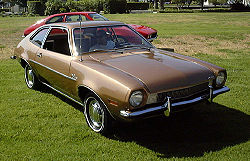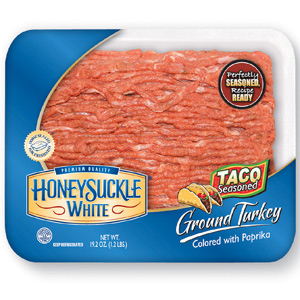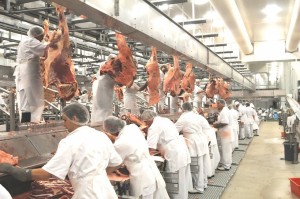Federal officials said in recent days that they turned up a dangerous form of salmonella at a Cargill Inc. turkey plant last year, and then four times this year at stores selling the Cargill turkey, but didn’t move for a recall until an outbreak killed one person and sickened 77 others.
Bill Tomson of The Wall Street Journal reports Cargill and the U.S. Department of Agriculture announced the recall of ground turkey from the Cargill plant in Springdale, Ark., on Aug. 3. The USDA said the third-largest meat recall in history affected 36 million pounds of ground turkey.
Food-safety specialists said the delay reflected a gap in federal rules that don’t treat salmonella as a poisonous contaminant, even if inspectors find antibiotic-resistant forms  such as the Heidelberg strain implicated in the latest outbreak.
such as the Heidelberg strain implicated in the latest outbreak.
"We have constraints when it comes to salmonella," said Elisabeth Hagen, the USDA’s top food-safety official, in an interview. She said that unlike E. coli, salmonella isn’t officially considered a dangerous adulterant in meat unless that meat is directly tied to an illness or death.
Meat plants are expected to pass a performance standard that allows up to 49.9% of tests to come back positive for salmonella. A Cargill spokesman said the Arkansas plant has passed all USDA performance standards despite what he called "routine" findings of salmonella Heidelberg.
Government agencies were "clearly too slow" in informing the public that there was a contamination in ground turkey, said Doug Powell, Kansas State University professor of food safety. He said the USDA should have contacted Cargill earlier about the contaminated store samples.
The USDA didn’t contact Cargill about suspected contamination of ground turkey until July 29, officials said.
I also told reporter Tomson, but it didn’t make it into the story, that Cargill and its customers – in this case Kroger – should be doing their own testing and striving for continuous  reduction in salmonella levels, from farm to processing. For Cargill to say it met government standards is like Ford saying its Pinto automobiles, which had a tendency to blow up when struck from behind, met all government standards. Government standards for food is are minimum, the lowest common denominator. Consumers should demand that food folks do better, but they can’t because food safety is not marketed at retail.
reduction in salmonella levels, from farm to processing. For Cargill to say it met government standards is like Ford saying its Pinto automobiles, which had a tendency to blow up when struck from behind, met all government standards. Government standards for food is are minimum, the lowest common denominator. Consumers should demand that food folks do better, but they can’t because food safety is not marketed at retail.
 A report, issued by Consumer Reports with the Pew Charitable Trusts, said that between 2003 and 2012, 1,144 people grew sick from beef contaminated with E. coli O157; 316 people were hospitalized and five people died.
A report, issued by Consumer Reports with the Pew Charitable Trusts, said that between 2003 and 2012, 1,144 people grew sick from beef contaminated with E. coli O157; 316 people were hospitalized and five people died.
 such as the Heidelberg strain implicated in the latest outbreak.
such as the Heidelberg strain implicated in the latest outbreak. reduction in salmonella levels, from farm to processing. For Cargill to say it met government standards is like Ford saying its Pinto automobiles, which had a tendency to blow up when struck from behind, met all government standards. Government standards for food is are minimum, the lowest common denominator. Consumers should demand that food folks do better, but they can’t because food safety is not marketed at retail.
reduction in salmonella levels, from farm to processing. For Cargill to say it met government standards is like Ford saying its Pinto automobiles, which had a tendency to blow up when struck from behind, met all government standards. Government standards for food is are minimum, the lowest common denominator. Consumers should demand that food folks do better, but they can’t because food safety is not marketed at retail.
